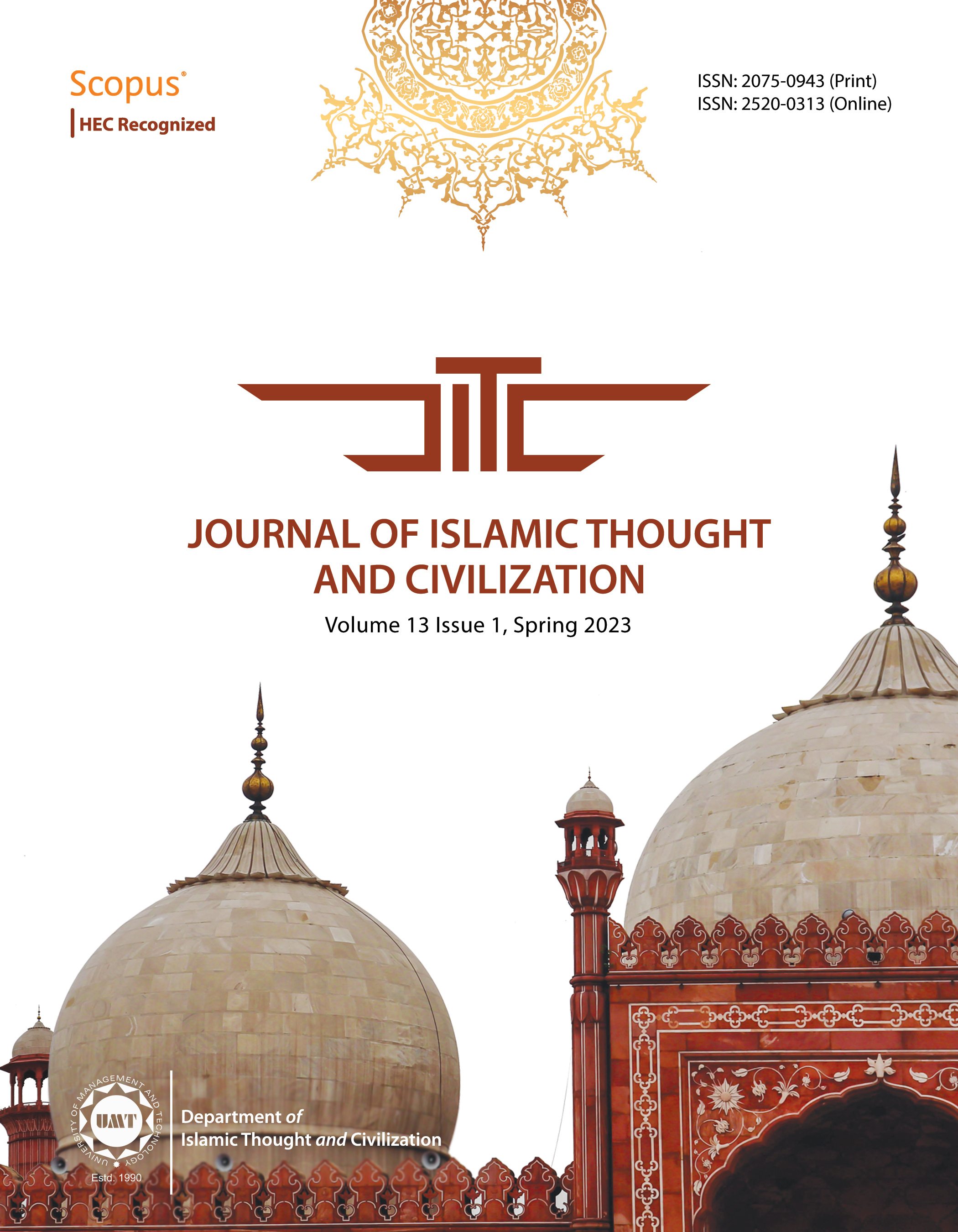Islamic Intellectualism versus Modernity: Attempts to Formulate Coherent Counter Narrative
Abstract
 Abstract Views: 69
Abstract Views: 69
Islamic intellectualism is an unfailing source of revealed wisdom for addressing all the issues that may keep arising till the judgment day. History has preserved works of several exceptional individuals who formulated effective answers in the light of this knowledge to the challenges of their times. In this age, modernity and its pernicious impacts on different aspects of human life pose a new challenge which has drawn undivided attention of scholars. Hence, they come up with various proposals to deal with it in an emphatic manner. It is, therefore, necessary for scholars to reevaluate the works of such influential intellectuals in order to enable themselves to address the new challenges. The current study incorporated the matchless contribution made by Jamal al-Din Afghani, Dr. Muhammad Iqbal, and Dr. Fazlur Rahman to the struggle against unabated onslaught on the faith and its foundations, civilization, and cultural development by western modernity. Afghani was the first to identify the problem and deliver a forceful and logical response by uncovering the pernicious effects of modernity. Dr. Iqbal improved upon Afghani’s contribution and strove to revive the dynamic spirit of Islamic thought, while Dr Fazlur Rahman completed their mission by moulding their ideas into an all-inclusive synthetic system. The discourse set off by the trilogy of their ideas constitutes an effective response to modernity which may also prove to be a blueprint for formulating viable responses to any future challenges to the true spirit of Islam.
Downloads
References
2. Dr Muhammad Iqbal, The Reconstruction of Religious Thought in Islam, Stanford University Press, California, 1989, Pp142.
3. Fazlur Rahman, Islam, Anchor Books Doubleday & Company, New York, 1968
4. Ramadan, Tariq, Radical Reform: Islamic Ethics and Liberation, Oxford University Press, 2009
5. Nikki R. Keddie, An Islamic Response to Western Imperialism: Political and Religious Writings of Sayyid Jamal al-Din Afghani, University of California Press Berkeley, Los Angeles, London, 1983, Pp3-4
6. Nikki R. Keddie, An Islamic Response to Western Imperialism: Political and Religious Writings of Sayyid Jamal al-Din Afghani, University of California Press Berkeley, Los Angeles, London, 1983, Pp24.
7. Dr Muhammad Iqbal, The Reconstruction of Religious Thought in Islam, Stanford University Press, California, 1989,
8. Fazlur Rahman, Islam, Anchor Books Doubleday & Company, New York, 1968
9. Fazlur Rahman, Islam, Anchor Books Doubleday & Company, New York, 1968
10. Fazlur Rahman, Islam, Anchor Books Doubleday & Company, New York, 1968
11. Ramadan, Tariq, Radical Reform: Islamic Ethics and Liberation, Oxford University Press, 2009.
12. Philip K. Hiti, The History of Arabs
Copyright (c) 2023 Muhammad Akhtar, Muhammad Atif Aslam Rao, Doğan Kaplan

This work is licensed under a Creative Commons Attribution 4.0 International License.

This work is licensed under a Creative Commons Attribution 4.0 International License. Authors retain copyright and grant the journal right of first publication with the work simultaneously licensed under a Creative Commons Attribution (CC-BY) 4.0 License that allows others to share the work with an acknowledgement of the work’s authorship and initial publication in this journal.








